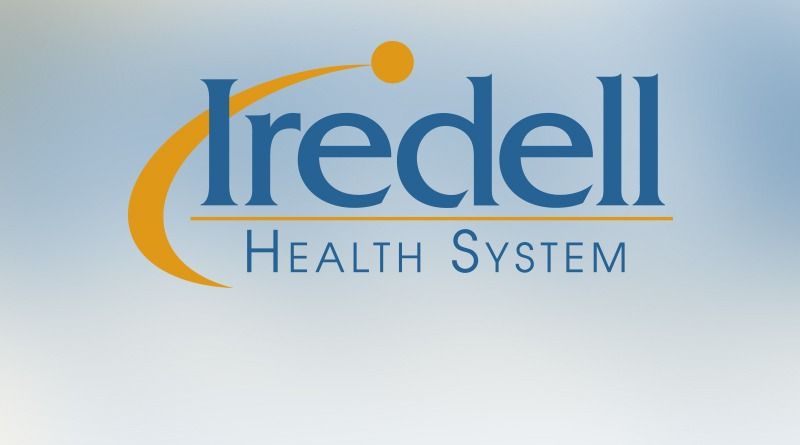Family Caregivers

Iredell County, NC – “There are only four kinds of people in this world: those who have been caregivers, those who are currently caregivers, those who will be caregivers, and those who will need caregivers. Caregiving is universal.”
This famous quote from Rosalynn Carter, Former First Lady of the United States, remains as powerful and relevant today as it did 36 years ago when she founded the Rosalynn Carter Institute for Caregivers. It rings especially true this month as we celebrate National Family Caregivers Month — a special time to recognize and honor caregivers across the country.
“This year, the theme for caregiver's month is ‘Caregiver Connect.’ It highlights how important it is for caregivers to build strong connections to access information, share experiences, and find support,” said Judy Porter, Oncology Social Worker and Navigator at Iredell Health System.
Caregivers are the unsung heroes of healthcare, serving as the backbone of support for loved ones facing illness, disability, or other challenging circumstances. While caregiving can be rewarding, many caregivers experience emotional, physical, and financial tolls as they balance caring for a loved one with all of their other personal responsibilities. Being a caregiver is one of the most important jobs a person may have, but it can also be one of the most difficult.
Below, Porter and Jackie Negley, Family Caregiver Specialist at Iredell Council on Aging, speak on the importance of family caregivers, shedding light on their invaluable role in maintaining the wellbeing of those they care for.
About Caregivers
“A caregiver is a person who assists another person with any need, which can be short term or long term. The term ‘family caregiver’ describes an individual who provides care for a family member as well as a neighbor, close friend, or member of their church. A caregiver can provide assistance with everything from getting their mail to providing hands-on care with personal care needs,” said Negley.
There are nearly 53 million caregivers in the United States, and that number is growing. Anyone can be a caregiver – a son, a daughter, a friend, a distant relative, or even a neighbor. Most caregivers are unpaid family members.
“A caregiver’s role can take on various degrees of care. For example, a caregiver to someone in the beginning stages of dementia may provide medication reminders, meal preparation, shopping, errands, or light housekeeping. As the disease progresses, needs may increase to bathing, dressing, addressing incontinence issues, managing finances, managing of all medical appointments and needs, and financial decision making,” said Porter.
Some caregivers provide a few hours of care per week, whereas others may provide 24/7 care. A common misconception, many caregivers do not actually have any sort of special training. In many cases, caregivers come into their new role unprepared.
“Most caregivers learn from trial and error. As the needs increase, they gather information to address the current need from other family, friends, neighbors, healthcare providers, and community resources,” said Porter.
Caregivers Need Care Too
Caring for an aging or disabled friend or relative can be very rewarding, but it can also be very tiring and stressful. Being a caregiver carries a high risk for burnout, and it’s important to find support from others and remember to also care for yourself.
In fact, according to a study conducted by the National Alliance for Caregiving, 23% of Americans say caregiving has made their own health worse. This percentage is up from 17% in 2015.
“Being a caregiver can take a toll on your wellbeing. As a caregiver, you may alter your daily routine by adding increased responsibilities, time away from other family commitments, decreased socialization with others, decreased involvement with formally enjoyed activities, hobbies,” said Porter. “While some caregivers experience positive psychological effects such as personal growth, competency or mastery, increased self-worth, and closer relationships, others may experience negative psychological effects. The negative effects could be evident in anger, bitterness, anxiety, depression, isolation, self-neglect, and medical decline.” In addition to caring for others, over 60% of caregivers have another full-time job. So, it’s important to seek support and take care of your own physical and mental health as well. When you feel better, you can provide better care to your loved one.
“There is assistance as well as support for caregivers available in Iredell County. The Council on Aging provides assistance through support groups, training programs specifically for caregivers, as well as respite and some assistance with items such as incontinence supplies, lifeline systems, and medical equipment,” said Negley.
Below is a list of free support groups from Iredell Health System and the Iredell Council on Aging.
• Iredell Health System and Council on Aging Caregiver Support Group – 3rd Wednesday of each month from 2-3 p.m. at the Statesville YMCA (828 Wesley Drive).
• Council on Aging Caregiver Support Group – 2nd and 4th Wednesday of each month from 2-4 p.m. at the South Iredell Senior Center in Mooresville.
• Council on Aging Alzheimer’s Support Group – 2nd Wednesday of each month from 10- 11 a.m. at the Iredell Senior Center in Statesville.
• Council on Aging Men’s Caregiver Support Group – 3rd Tuesday of each month from 9- 10 a.m. at the Iredell Senior Center in Statesville.
About Iredell Health System Iredell Health System includes Iredell Memorial Hospital; Iredell Mooresville; two urgent care centers; Iredell Home Health; Iredell Wound Care & Hyperbaric Center; Community and Corporate Wellness; Occupational Medicine; the Iredell Physician Network and more. Iredell Memorial Hospital is the largest and only nonprofit hospital in Iredell County. The comprehensive healthcare facility has 247 beds; more than 1,800 employees; and has 260 physicians representing various specialties. Centers of excellence include Women’s and Children’s; Cardiovascular; Cancer; Surgical Services and Wellness & Prevention. The Health System’s second campus, Iredell Mooresville, is home to the area’s only 24-hour urgent care facility, as well as an ambulatory surgery center, imaging center, rehabilitation services, and physician practices. The mission of Iredell Health System is to inspire wellbeing. For a comprehensive list of services and programs, visit www.iredellhealth.org.































